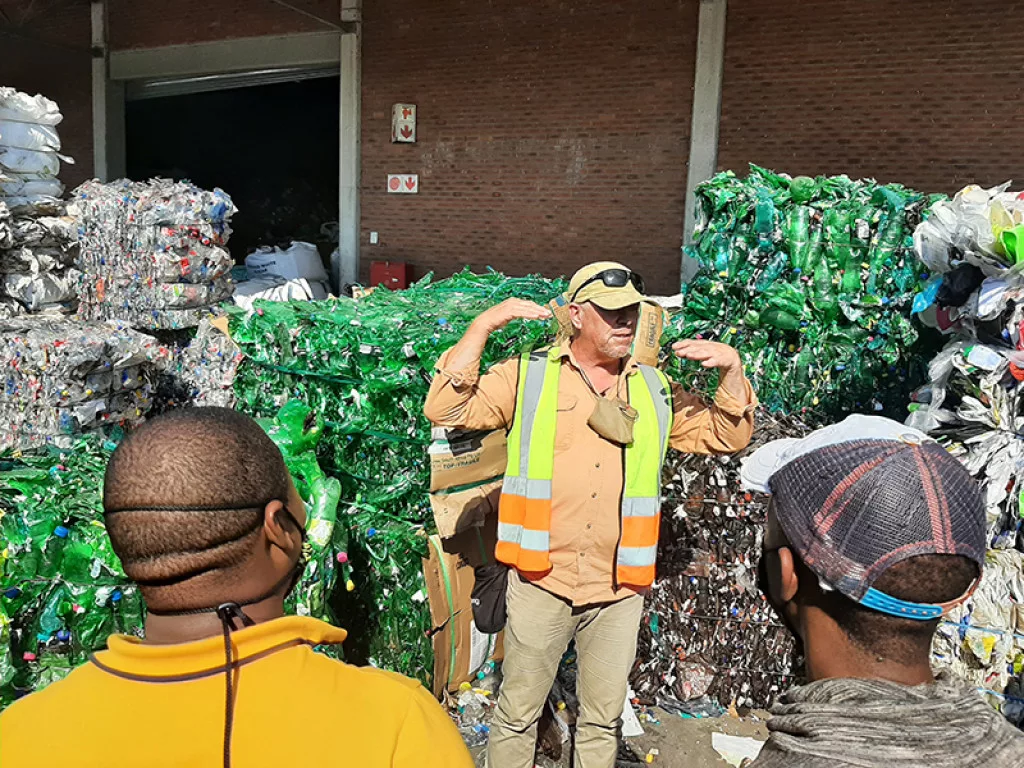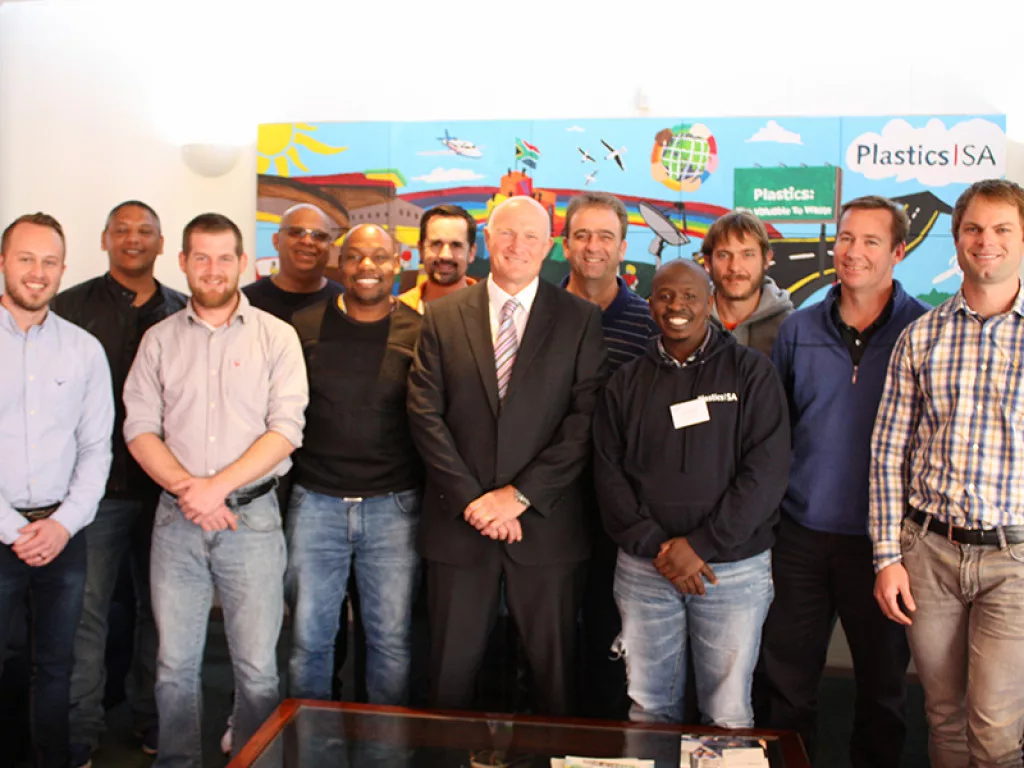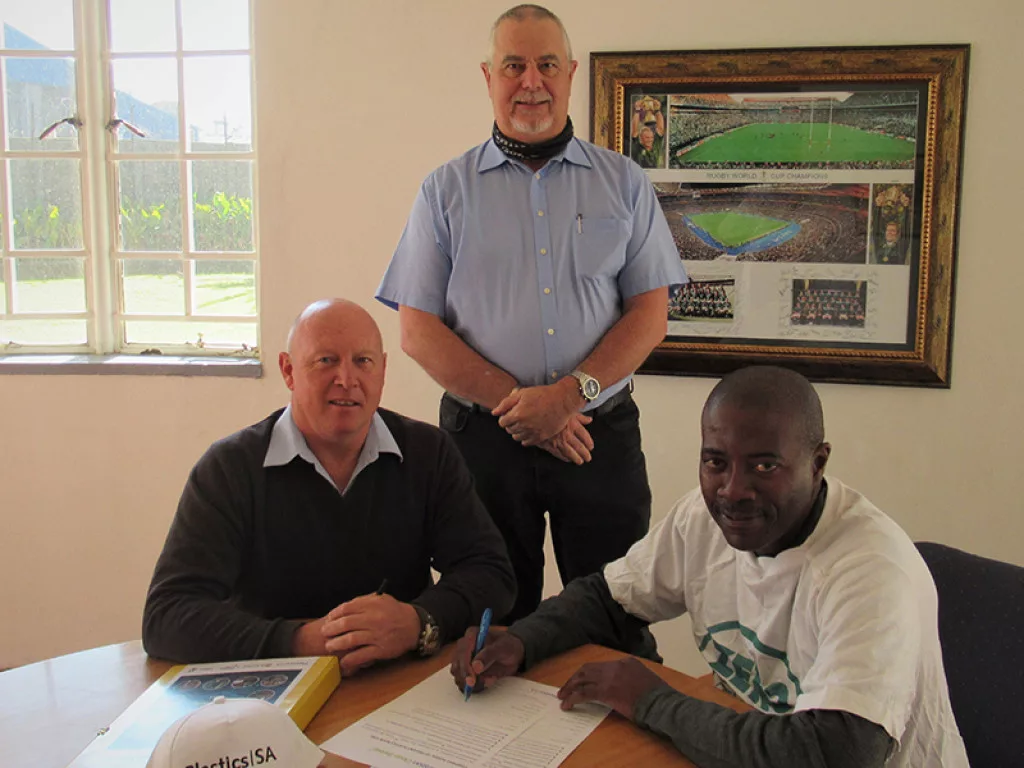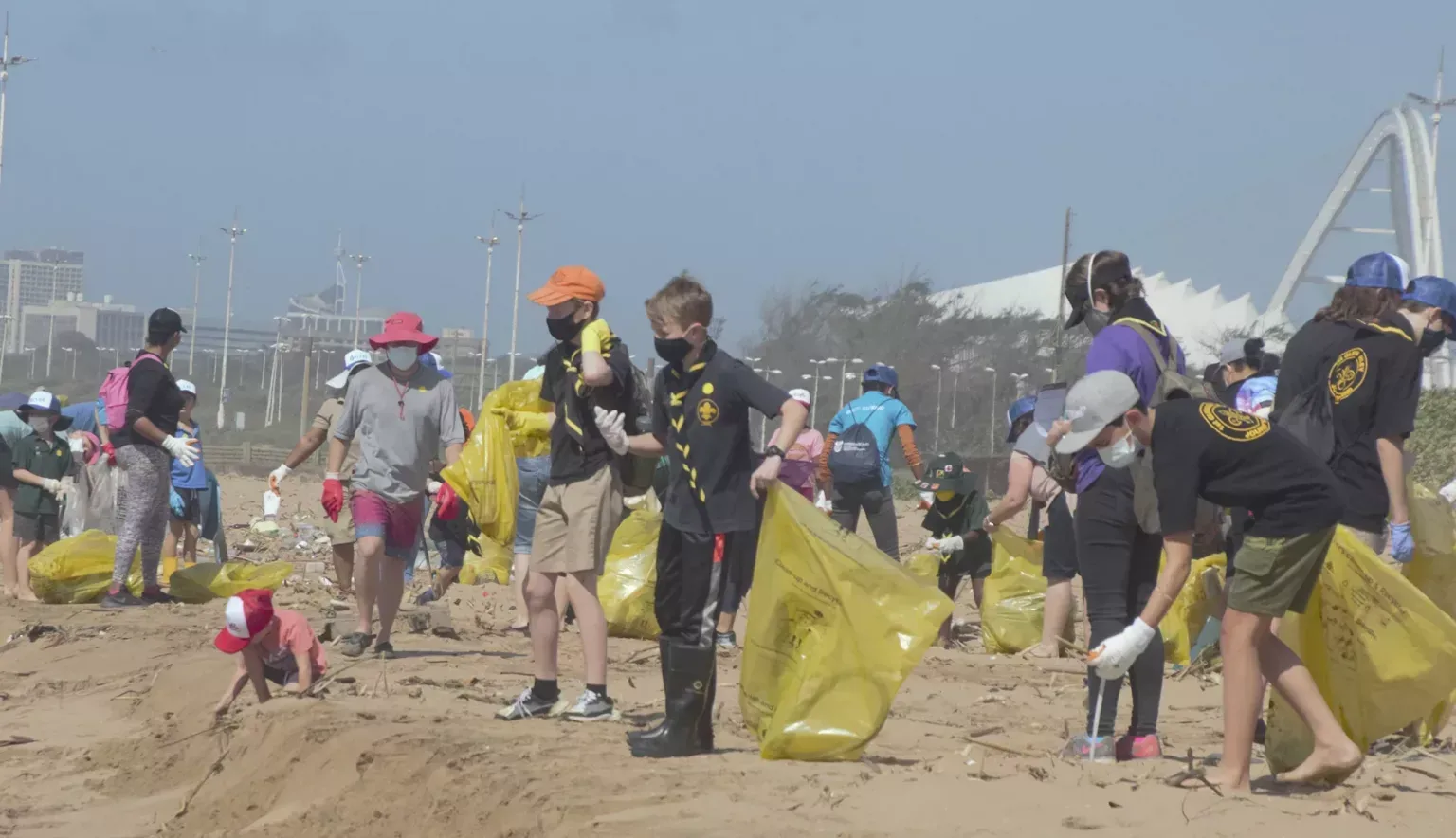Plastics SA is championing responsible plastic packaging consumption and driving the circular company to guarantee a vital and competitive industry for South Africa. Executive Director, Anton Hanekom, tells us more.
INTRODUCTION
Every sector worldwide relies on plastic to some degree, from the automotive industry to education. As the largest manufacturer of plastics in sub-Saharan Africa, the South African plastics industry converts approximately 1.84 million tonnes of locally produced and imported polymers each year.
Faced with challenging market conditions, the industry today is defined by the prevailing trends of extended producer responsibility (EPR), responding to pressure groups, and accelerating the circular economy.
Experiencing shifting market demands, most recently the overarching need for sustainability with a product that is widely perceived as an environmental threat, the industry has come to embody the versatility, resiliency and durability of the material itself.
We speak with the organisation challenging the negative perception of plastics and advocating for the responsible production and consumption to make it a material of choice and guarantee the sector’s longevity.
“Together with our associations, we play an active role in the growth and development of the South African plastics industry and strive to address plastics related issues, influence role players and make plastics the material of choice”
Anton Hanekom, Executive Director, Plastics SA

INTERVIEW: PLASTICS SA
Can you talk me through the origins of Plastics SA, how it came about, and its initial vision?
Anton Hanekom, Executive Director (AH): Plastics SA traces its roots back to 1975 when it was informally created by representatives of various plastic organisations operational in South Africa at the time. A few years later, the Plastics Federation of South Africa (Plasfed) was officially formed and registered as a Non-Profit Company (NPC) in 1979. In 2011 the Plastics Federation of South Africa officially changed its name to Plastics SA and introduced a new brand identity as part of its aim to represent a South African plastics industry that is dynamic, modern and in step with international developments.
As the umbrella organisation for the South African plastics industry, Plastics SA represents all sectors, including polymer producers and importers, converters, machine suppliers, fabricators and recyclers. Our primary focus areas have always been advocacy, providing technical training to the industry, promoting the use of plastics and educating the public on issues including recycling and litter reclamation.
Plastics SA is funded by membership fees based on sales of locally manufactured and imported plastics raw materials and other contributions and sponsorships from industry associations. Most of our income is derived from our training activities within the plastics industry.
Since its inception, how has Plastics SA developed and progressed in terms of its key objectives and the messages it tries to get across?
AH: In step with the changing needs and demands of this dynamic industry, Plastics SA has adapted its strategy and focus areas over the years. Being part of the greater, global plastics community also influences our objectives, messages and methodologies. One thing that has remained unchanged, however, has been our unwavering commitment to support our industry.
The last decade has seen us place a much stronger emphasis on sustainability. 20 years ago, the issue of plastics at sea was of little or no importance to many – although Plastics SA was already sounding the alarm bells at the time about waste material entering the marine environment and appealing to the public to use and discard their plastics responsibly.
Today, this issue has been pushed to the top of the agenda in South Africa and around the world. As a result, we have begun seeing much greater support and participation by individual citizens, communities, corporates, municipalities and national government in our various beach, river and in-land clean-ups.
Our action plans have undoubtedly shifted over the last few years to a much stronger focus on the circular economy, EPR, the roles and responsibility of Producer Responsibility Organisations (PROs) in meeting collection and recycling targets, the need for effective waste management infrastructure, plastic alternatives, compostability, chemical recycling, and creating a ‘nothing wasted’ mindset to ensure that plastics do not end up in the environment. All these initiatives take place within the context of encouraging collaboration through the full value chain where everybody has a part to play.
We take the role of communication very seriously and have various target audiences with whom we engage. Our efforts to educate and communicate the benefits of plastics that are fit-for-purpose to end-users are ongoing. Consumers influence the retailers with regards to the products and packaging they stock on their shelves. They are also often the most vocal pressure group, but unfortunately very often their opinions are based on half-truths that need to be corrected and countered. Using the power of print, broadcast and social media, we aim to provide a balanced, realistic and well-researched view about the use, reuse and recycling of plastics.
The plastics industry itself is another target audience. Encouraging safe and sustainable manufacturing processes and getting the entire value chain to become involved in our efforts to be an environmentally responsible industry are key objectives. We also need the industry’s input and participation in our research for producing up-to-date industry statistics.
Finally, government and the business community are our third major target audience as we need their involvement and willingness to collaborate with the industry by forming public-private partnerships (PPPs) if we are to succeed in our efforts.
What do you find most exciting about South Africa’s Plastics Industry?
AH: The past few years have not been easy for local plastics manufacturers and recyclers. Issues such as unstable electricity supply and load shedding, high operating costs, labour unrest and the impacts of COVID-19 have left us battered and bruised. However, these players refuse to give up. They rally together when the going gets tough and are not afraid of adapting or embracing change when it is needed. Even the most difficult of challenges are faced and conquered with good nature, resilience and perseverance.
Looking ahead, we are excited about the Plastics Master Plan which aims to initiate passion and enthusiasm for locally manufactured products and, in turn, grow the local plastics industry and the South African economy.
As of 5th November 2021, South Africa has put into effect new EPR legislation, whereby it is now mandatory for producers of packaging to register with South Africa’s Department of Forestry, Fisheries and the Environment (DFFE), to join or create a PRO and pay the relevant EPR fees. We are excited about what this new legislation could mean for the industry in boosting our sustainability efforts to create a circular economy as citizens, retailers, brand owners, packaging manufacturers, government and the recycling industry start to collaborate with one another.

On the flip side, what are its biggest challenges?
AH: In the wake of COP26, discussions are now taking place about the possibility of separating plastics from fossil fuels. These are noble endeavours, but it is important that we take into consideration the rights and livelihoods of workers when shifting to sustainable alternatives and processes. We must ensure that the replacement material for plastics is economical, recyclable, effective and fit-for-purpose. Plastic remains one of the most environmentally friendly materials (provided we reuse and recycle it) and will play a major role in a lower carbon future.
Government’s support for initiatives aimed at reducing plastic waste has strengthened the growth of the plastics market. Despite the vocal anti-plastics sentiment, the demand for plastics continues to grow in various end-user industries, for instance in the automobile sector. As our population increases in the coming years, the demand for food will continue to rise. Food will also need to arrive fresh and intact on the consumer’s dinner table, placing a greater demand on packaging that will keep goods fresher for longer and protect it from contamination or breakage during transit. Plastics do exactly that. It is lighter to transport than alternative packaging materials and helps save on greenhouse gas emissions, but we must ensure that the packaging can be re-used or collected for recycling.
Making paradigm shifts also means that the industry needs to take a long, hard look at its own methodologies and approaches. We recognise that it cannot be “business as usual” when climate change is a reality and households around the world are under pressure financially. Because the cheapest products (mainly imported) on the shelves are the ones that are being bought, the industry has a considerable trade deficit. We are losing ground due to our under-performing economy, so where possible, we need to cut back, redesign and become more economical without sacrificing on sustainability.
Finally, we need to encourage our citizens to buy local. During 2020, the South African plastics industry recorded a R13 billion trade deficit. We need to replace these imports with locally produced and procured products.
“This is an incredibly resilient, innovative and hard-working industry”
Anton Hanekom, Executive Director, Plastics SA

Have you got any projects in the pipeline you wish to highlight?
AH: The need for current, evidence-based industry information and relevant trade data has become critical. For this reason, Plastics SA will be expanding its technical skills and knowledge base during 2022 in order to offer ongoing technical support to its members and the industry at large. We are currently in the process of developing a new knowledge base where we are hoping to attract the most experienced minds to help us grow, expand and support the industry.
We have just appointed an industry stalwart to the position of Technical Operations Executive, and are currently recruiting for a new Sustainability Project Coordinator, who will be supporting environmentally responsible actions that benefit the industry, as well as a Research and Knowledge Management Specialist, who will be tasked with researching economic indicators and industry statistics, collaborating on and influencing research projects, maintaining access to key industry information, and creating a knowledge hub.
Finally, we have created a position for an Industry Growth and Trade Specialist who will focus on creating and enabling access to information about the local and international trade environment for the development of sustainable and inclusive growth of the industry.
Our well-established training department is currently also in the process of rebranding and repositioning itself as an Academy of Learning and Development that will equip local and international learners with the latest technical and practical skills to address skill gaps facing the industry. The new academy will officially be launched early in 2022, with an expanded curriculum and a service offering geared towards appealing to our local market, whilst also adding significant value to the plastic manufacturing industries in the rest of Africa.
In terms of sustainability, our various clean-up projects will continue to grow next year. This includes our river catchment projects, litter boom initiatives and various coastal and inland clean-up projects. Plastics SA will once again be involved in the hosting of the International Conference of the African Marine Waste Network, which will take place from 25th to 29th April in Port Elizabeth. This event will aim to get representatives of various African countries to work together towards achieving “Zero Plastics to the Seas”.
We are also excited to be partnering with the Council for Scientific and Industrial Research (CSIR) and Green Cape on a new pilot project entitled, “Breaking the Plastic Wave”, a world first research model that aims to cut the annual flow of plastic into the oceans by approximately 80 percent over the next 20 years by applying existing solutions and technologies.
The CSIR were part of the development of this model and approached SA to become the first pilot project in the world. As part of the Working Group Steering committee, Plastics SA is populating the model with data sets; once the research has been completed, the model will provide a clear, evidence-based approach to dealing with the management of plastic waste, detailing the challenges we face and the best way to address them.
“We need to embrace a circular economy and create a ‘nothing wasted’ mindset to ensure that every piece of plastic that gets created, is collected and recycled again back into raw material”
Anton Hanekom, Executive Director, Plastics SA
How do you see the industry developing over the next five years?
AH: We are very optimistic about the future of the plastics industry in South Africa. Plastic has been around since the 1950s and its versatility has ensured its use in almost every aspect of modern life. We have no doubt that plastics are here to stay. We might see certain changes being introduced over the next few years in terms of focus areas, processes and messages, but plastic will continue to be one of most environmentally friendly, fit-for-purpose materials.
The vocal calls we sometimes hear to ban the use of plastics is based on disinformation and without any solid evidence that can back up the claims. Not only can these irrational arguments be potentially perilous to the environment that we are trying to protect, but they could also jeopardise the livelihoods of many of our local manufacturers and their employees could be impacted by public pressure.
Virgin consumption grew by 11 percent in the last 10 years, whereas domestic recyclate consumption grew by 35 percent in the same period. Strengthening the competitiveness of the South African plastics industry will have a significant impact on the recovery of the manufacturing sector in general. For the plastics industry to grow, products and sectors need to be identified where the added value would be substantial, and the cost of manufacturing (all inclusive) would be affordable.
To help us develop and maintain a plastics sector that is dynamic, vibrant and growing in line with the needs of our country and international developments, we encourage ongoing debates, discussions and partnerships. Although we might not know exactly what the future holds for us as an industry or as an organisation, we continue to dream of doing many great things that will reverberate into society for the benefit of future generations.

































